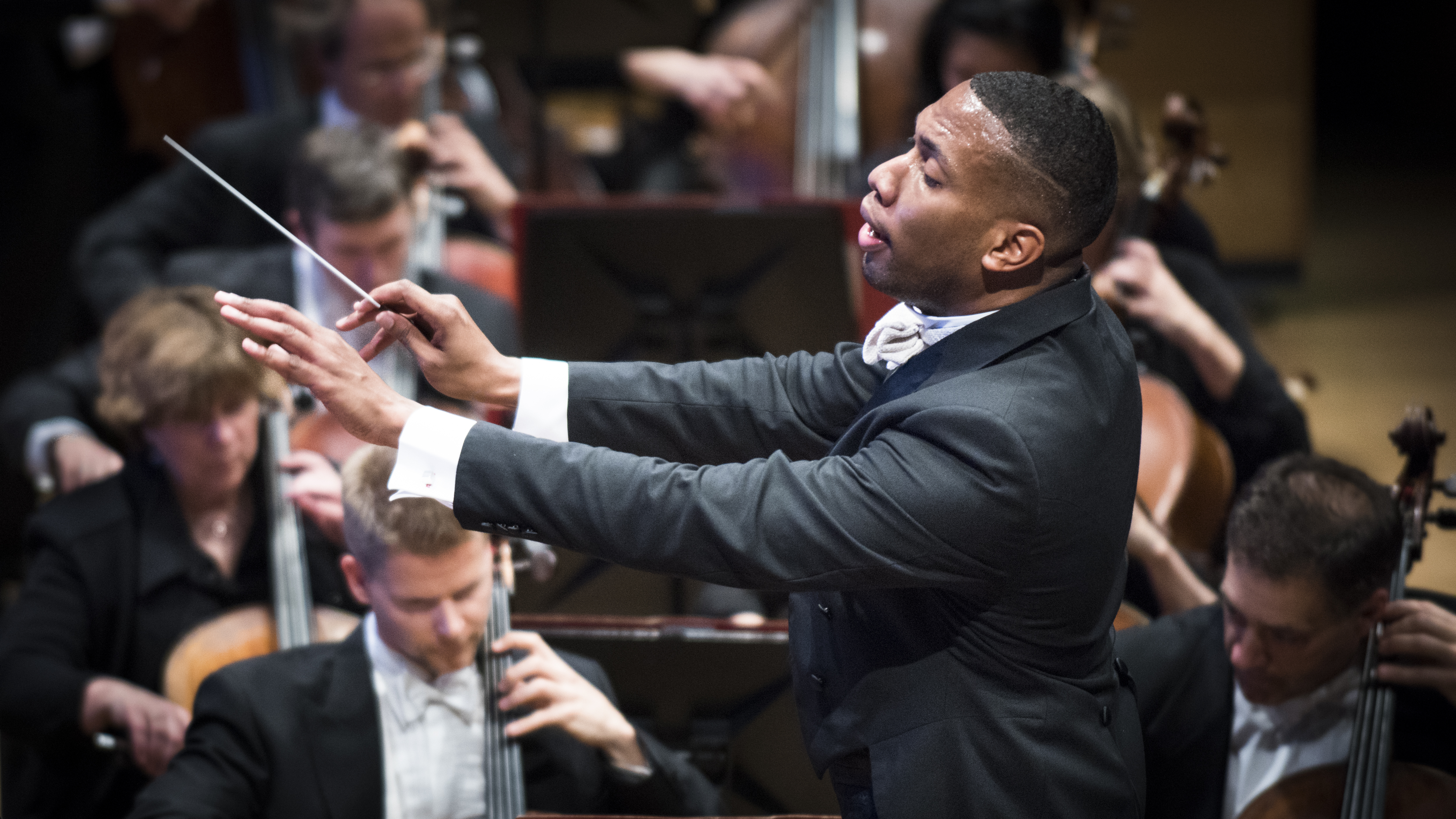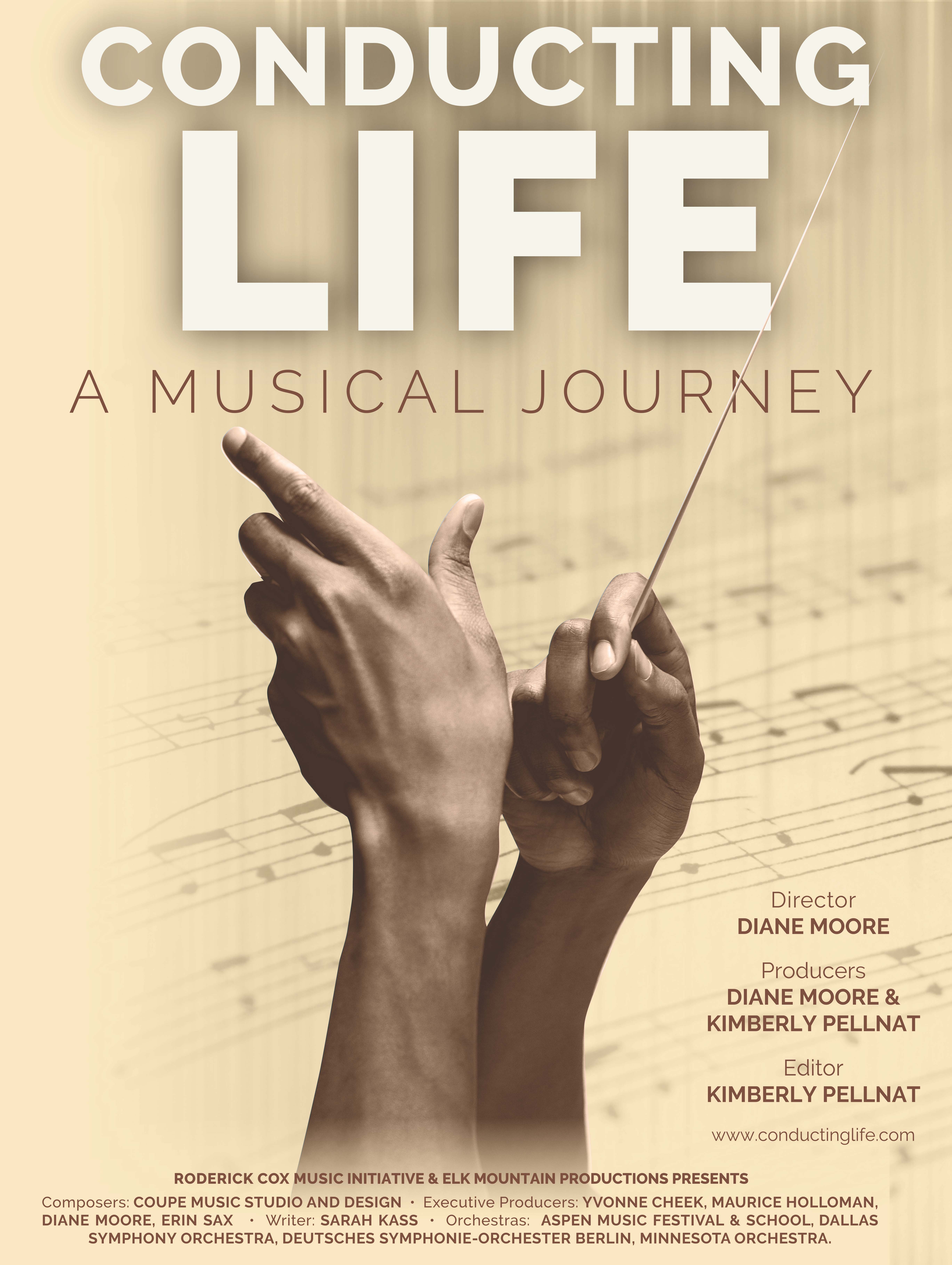Conducting Life
Diane Moore
Each summer some of the top performers, instructors, and young musicians gather in my hometown to master their skills and perform together at the Aspen Music Festival & School. Listening to these musical performances is a joyful experience, as music evokes a range of emotions, connecting to something deep inside of us, and transporting listeners to many places, past and present. I thought about the dedication, skills and sacrifices required by the student musicians to master the complex music pieces. I was curious about how their love of music and their pursuit of excellence transformed their lives, and the idea of creating a documentary about the student’s musical and life experiences took shape.
The storyline for the film narrowed once I met Roderick Cox in the summer of 2013, who was an orchestral conducting fellow attending the Aspen Music Festival & School. Roderick’s journey to the concert stage was anything but typical. His background and personal history, his drive and talent, and the formidable odds he faced in a very competitive profession, including the fact that there are very few notable black conductors in the history of classical music, made for a compelling story. During my research for the film, I learned that most documentary portraits were about artists at the end of their career. Roderick was twenty-six years old when we met, and I felt that filming Roderick over multiple years and in different locations in the early stages of his career would give audiences the gift of time to see how his life unfolds. I wanted to capture the highs and lows of his personal and musical journey. How does he handle adversity? What are the obstacles? Will he be given a fair chance to compete? What does it take to be a conductor? Will he make it? Is there hope?
One of the things I felt strongly about in the making CONDUCTING LIFE is that I wanted this film to have its own language, both tonally and structurally. I realized early on that this was not a documentary about Roderick but more about making a documentary with Roderick. He was willing to open his world to others so that we could experience his reality, witness his transformation, and see who he is, what he loves, and what he is creating via music. I wanted Roderick’s passion for music to come through in the film and connect with audiences, and for audiences to experience the beautiful emotional moments of the music making that I experienced in the concert halls filming Roderick. Music is an important element of his story, and it was essential to select complementary orchestral music pieces for use in the film to demonstrate his musical talents. Additionally, Roderick’s mother introduced him to gospel music at a young age and her positive influence on his career was a significant element to weave into the storyline, along with the contributions from his graduate school mentors.
One of the rewarding outcomes of making this film was the creation of the Roderick Cox Music Initiative, the Initiative changes lives and opens doors by awarding scholarships to aspiring young classical musicals of color in the Twin Cities area. The world is changing, and classical music can help bridge the racial divide in communities and bring people together to share musical experiences.





